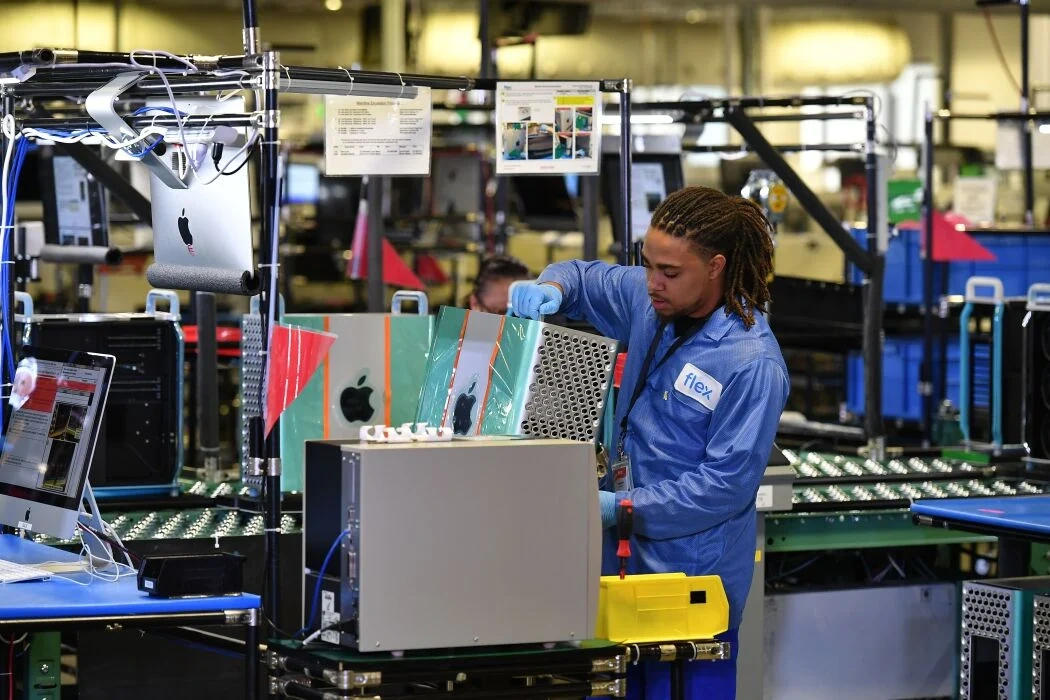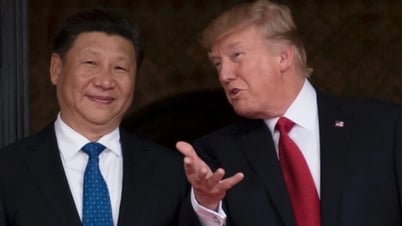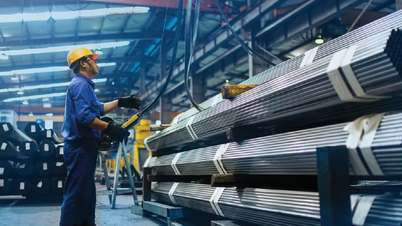On April 2, President Donald Trump announced the application of reciprocal tariffs on all trading partners in the US.
These new tariffs take effect on April 9 (US time), with goods from Asian manufacturing hubs such as Vietnam, China, India, Thailand, etc. facing much higher import taxes than before.
As for China, President Trump said he would impose an additional 50% tariff on goods imported from this country to the US, raising the total tariff on Chinese imports to 104%. This is a move by the US government in response to China imposing tariffs on goods imported from the US.
While some countries and regions have said they are seeking trade deals with the US to eliminate tariffs, Beijing has said it will "fight to the end" and will take measures to counter the US's increased tariffs.
President Donald Trump said the increase in import tariffs from dozens of countries and regions, ranging from 25% to 54%, is a move to boost the US economy and protect American workers.
However, the research department of financial group Morgan Stanley has called the new tariffs applied by the Trump administration a "lose-lose" situation for US technology companies, such as Apple, Dell or HP...
Meanwhile, technology companies themselves are rushing to find their own solutions to cope with Mr. Trump's new tax rate.
Apple rushes to import products before new tax rate takes effect
Apple is one of the technology companies that quickly came up with solutions to deal with the new import taxes of the Trump administration.
Since the end of March, Apple has mobilized 5 cargo flights to import a series of iPhones, iPads, accessories and other products from China and India to the US to be ready to supply to users in the US.
Sources said the inventory is enough to supply Apple to US users for many months, even until Apple launches a new series of iPhones.

Apple has prepared reserves to avoid having to increase product prices in the US market due to the new tax (Photo: Getty).
However, there is no guarantee that the price of iPhones in the US will not increase in the near future, when the inventory is sold out. In addition, increasing the price of iPhones in the US can also increase the price of the product in other markets.
Market analysts also proposed a scenario where Apple would accept the tax, reducing its profit per unit sold in order to not increase sales of its products. However, this scenario is considered unlikely to become a reality.
Dell and HP import a series of products priced over 3,000 USD to the US before applying new tax rates.
Computer companies Dell and HP have made changes to their product supply chains since 2018, the first term of US President Donald Trump, when they gradually moved their manufacturing from China to neighboring countries such as Thailand and Vietnam.

HP and Dell have also rushed to import high-end laptop models to the US before the new tax rate takes effect (Illustration: Lifewire).
However, Thailand and Vietnam are also two countries subject to new high reciprocal tax rates, 36% and 46% respectively.
According to sources, to anticipate the new import tax, the two computer companies Dell and HP have also rushed to import a series of high-end computer models to the US, especially products priced over 3,000 USD.
This helps computer companies maintain their profit margin on each product sold, or prevent high-end products from being priced too high due to the impact of import taxes.
Two computer companies temporarily suspend sales in the US to adjust prices.
Computer company Razer has temporarily stopped allowing users in the US to order laptops and accessories on its official website.
Users in the US who visit Razer’s online store will only receive a message that the products are not available for purchase or that the prices have disappeared from the website. Many products have also been removed from Razer’s US online store.

Razer hides prices on all products on its US online store (Screenshot).
Meanwhile, users in other countries can still access and order on Razer's official website.
Razer has manufacturing plants in Taiwan and mainland China. In addition, some of its components are manufactured in Southeast Asian countries such as Vietnam and Malaysia… therefore, the import tax on Razer products and components into the US market will be very high.
Razer has not commented on its move, but many believe the company is preparing to adjust the prices of its products in the US market to match the newly applied import tax.
In addition to Razer, another American computer company, Framework, has also temporarily stopped selling its products in its home country.
Framework is a computer company founded in 2020, famous for selling modular laptop models, allowing users to easily replace and upgrade internal hardware.
Framework has its manufacturing plant in Taiwan (China), so it must pay high taxes when importing products from the factory for sale in the US market.
Is moving manufacturing to the US the solution?
Morgan Stanley researchers say it is unlikely that tech companies will move manufacturing to the US to avoid tariffs. This is due to high labor costs, labor shortages, and policy inconsistencies between presidents.

Moving manufacturing plants back to the US is not considered an optimal solution for technology companies (Photo: PCMag).
If technology companies were to move their manufacturing plants to the US, they would spend tens of billions, even hundreds of billions of dollars to build new factories. In addition, building new factories would take months or even years to get them up and running smoothly. Not to mention that manufacturing plants in Asia always enjoy preferential operating costs.
"Building a manufacturing plant in the US would take at least nine months and a huge investment. Not to mention the process would take years, and then there's the question of the available workforce in the US.
We believe that even with robotic automation, there will still not be enough skilled workers in the US to be ready to do the work," Morgan Stanley experts commented.
Will raising prices be the most viable solution?
Morgan Stanley experts believe that increasing product prices will be the most feasible solution for US technology companies to cope with the new import tariffs of the Trump administration.
“There is little flexibility to build up inventory to avoid tariffs, while diversifying supply chains will take a long time. Raising product prices is the most likely way to mitigate the damage, but this will be inflationary and will certainly hurt consumer demand,” Morgan Stanley said in a report.
According to the latest announcement, President Trump has decided to temporarily suspend new tariffs for 90 days for 75 countries that have agreed to negotiate tariffs with the US. Meanwhile, he decided to increase import tariffs on Chinese goods to 125% in response to this country's action of increasing import tariffs from the US.
Source: https://dantri.com.vn/cong-nghe/cac-hang-cong-nghe-my-quay-cuong-ung-pho-muc-thue-moi-cua-ong-trump-20250410012426604.htm







![[Photo] Prime Minister Pham Minh Chinh receives Swedish Minister of International Development Cooperation and Foreign Trade](https://vphoto.vietnam.vn/thumb/1200x675/vietnam/resource/IMAGE/2025/5/12/ae50d0bb57584fd1bbe1cd77d9ad6d97)
















![[Photo] Prime Minister Pham Minh Chinh works with the Standing Committee of Thai Binh Provincial Party Committee](https://vphoto.vietnam.vn/thumb/1200x675/vietnam/resource/IMAGE/2025/5/12/f514ab990c544e05a446f77bba59c7d1)




































































Comment (0)